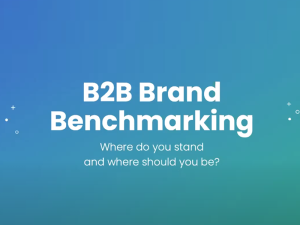Deciding which decisions to validate with formal market research or data can be a tough job for marketers. And a lot of that comes down to personality type.
Analytical, logical types will tend to err on the side of caution and require solid data for most decisions. This means they generally make less mistakes than their counterparts who rely more on instinct and intuition.
But this isn’t a black and white issue. Whilst the analyst is gathering the data to make a single decision, their more agile colleague may have made 10 times as many, meaning they’ve made a few great decisions in the time it takes for the analysts to make one good one. They’ve also stuffed up a load too though.
So, how do you find the balance? How do you gauge whether a decision needs a full set of data to back it up or whether leaning on your own experience and knowledge will suffice? Here we explore when your best guess is good enough and when it really won’t be.
When your best guess is not enough
When the decision will impact the business to a significant degree over time
Big decisions, around strategic direction for example, will have far reaching consequences into the future. This is not the time to be leaning on what you think you know about your market, your customers etc.
When the impact of the decision will affect multiple other opportunities
This is related to the previous point, but more about the interrelated nature of some parts of your marketing. For instance if your content marketing is completely intertwined with your (very successful) social media marketing, you don’t want to do a complete 180 on your content strategy based on a hunch.
Where making sure is relatively simple and cost effective
Generally, it’s always better to know you know rather than thinking you do. So if obtaining the information you need to verify your decision is relatively straightforward, it’s always preferable to do it.
Where you have an underperforming area of marketing
Marketers can waste a huge amount of time and resources thinking that they have identified the cause of underperformance, only to find out that they haven’t. It’s tempting to play doctor and diagnose based on the symptoms, but to effectively fix any issue, you need to find hard evidence to confirm your suspicions. It’s like the difference between assuming someone who has headaches has a brain tumour versus sticking them in for an MRI and actually finding one.
When a best guess will do
You might think that based on the previous section, we’re advocating always using data driven decisions in every circumstance. But we’re not. There are times when a best guess can be good enough.
Where an opportunity comes up that is time sensitive
Sometimes you’re presented with the chance to do something that won’t wait. Maybe it’s jumping on a trending social media topic or responding to an external event. Sometimes you just need to act quickly, trust your experience and take comfort in the fact that inaction would mean zero benefit anyway.
Where the cost of gathering the data is disproportionate to the commercial advantage offered by the opportunity
Research should always be something that will deliver an appreciable commercial advantage, not a comfort blanket or arse covering measure for anyone not confident in their own decision making ability. You can’t verify everything, so marketers need to get used to taking a certain proportion of your decisions without a full data set to back it up.
That said, again this isn’t a black and white thing. It’s not usually a case of all the information or none at all. As marketers, we should always leverage what we have to hand and try and fill in the gaps where necessary, either with formal research or our own relevant experiences.










